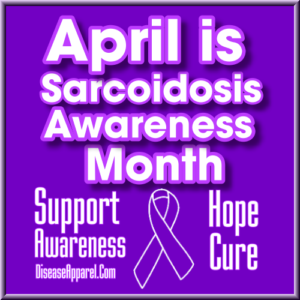Sarcoidosis (pronounced SAR-COY-DOE-SIS) is an inflammatory disease characterized by the formation of granulomas, tiny clumps of inflammatory cells, in one or more organs of the body. When the immune system goes into overdrive and too many of these clumps form, they can interfere with an organ’s structure and function. When left unchecked, chronic inflammation can lead to fibrosis, which is permanent thickening or scarring of organ tissue.
This disorder can affect almost any organ in the body, including the heart, skin, liver, kidneys, brain, sinuses, eyes, muscles, bones, and other areas. Sarcoidosis most commonly targets the lungs and the lymph nodes, which are an important part of the immune system. When it affects the lungs, it is called pulmonary sarcoidosis. Ninety percent or more of people diagnosed with the disease have lung involvement.
Doctors believe sarcoidosis results from the body’s immune system responding to an unknown substance, most likely something inhaled from the air.
General symptoms
For many people, sarcoidosis begins with these symptoms:
- Fatigue
- Fever
- Swollen lymph nodes
- Weight loss
Lung symptoms
Many patients with sarcoidosis experience lung problems, which may include:
- Persistent dry cough
- Shortness of breath
- Wheezing
- Chest pain
Skin symptoms
Some people who have sarcoidosis develop skin problems, which may include:
- A rash of red or reddish-purple bumps, usually located on the shins or ankles, which may be warm and tender to the touch
- Disfiguring sores (lesions) on the nose, cheeks and ears
- Areas of skin that are darker or lighter in color
- Growths under the skin (nodules), particularly around scars or tattoos
Eye symptoms
Sarcoidosis can affect the eyes without causing any symptoms, so it’s important to have your eyes checked. When eye symptoms do occur, they may include:
- Blurred vision
- Eye pain
- Severe redness
- Sensitivity to light
Heart symptoms
Cardiac sarcoidosis: A heart under attack
Signs and symptoms related to cardiac sarcoidosis may include:
- Chest pain
- Shortness of breath (dyspnea)
- Fainting (syncope)
- Fatigue
- Irregular heartbeats (arrhythmias)
- Rapid or fluttering heart beat (palpitations)
- Swelling caused by excess fluid (edema)
Stay tune for Part II tomorrow on Sardcoidosis Awareness Month!

